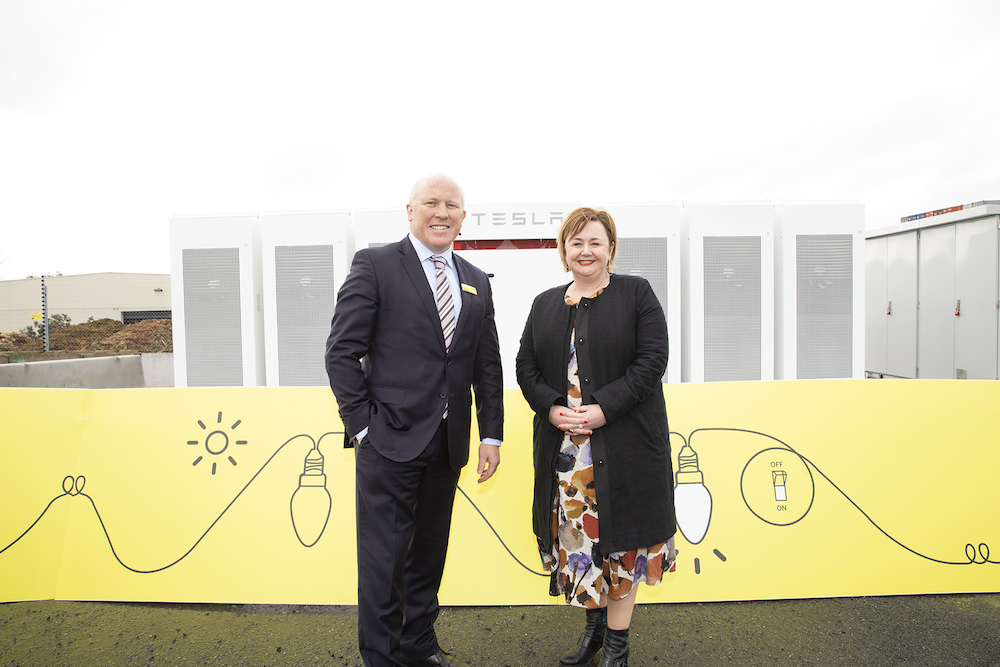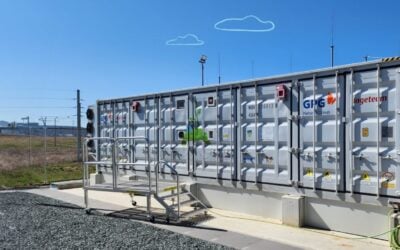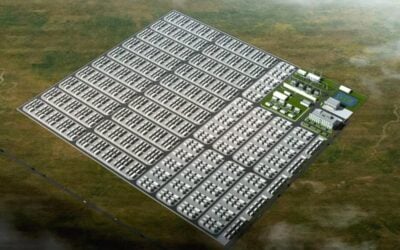
Construction will commence in New Zealand on the country’s biggest battery energy storage system (BESS) project so far in July this year, with the 35MW system expected to be commissioned in December.
Project partners WEL Networks — and electricity distribution company — and renewable energy developer Infratec announced this week that major equipment suppliers have been contracted for the project.
Enjoy 12 months of exclusive analysis
- Regular insight and analysis of the industry’s biggest developments
- In-depth interviews with the industry’s leading figures
- Annual digital subscription to the PV Tech Power journal
- Discounts on Solar Media’s portfolio of events, in-person and virtual
They include vertically integrated BESS solutions company Saft and inverter electronics company Power Electronics NZ. This week Saft was also announced as contractor to the largest BESS project in the Arctic and recently completed work on France’s biggest project of its type.
In October 2021, Energy-Storage.news reported that WEL Networks and Infratec were in the final assessment stages of the project, to be built in Huntly, a town in the Waikato district of the Upper North Island.
Expected project costs cited by WEL Networks chief executive Garth Dibley at the time were about NZ$25 million (US$17.13 million).
The BESS will provide fast reserve ancillary services to the local grid, as well as providing backup power in the event of emergencies. Dibley said on Monday that it will support electric vehicle (EV) charging and maximise the benefits of solar power.
New Zealand has an ambitious goal of sourcing all of its electricity from renewables by 2030 — albeit thanks mainly to hydropower and then geothermal and biomass with some wind, the country is already on a fairly advanced pathway towards that goal.
However, much of its baseload and balancing energy still comes from different thermal power sources including coal and gas.
The country’s first 1MW/2.3MWh BESS, using Tesla Powerpack 2 equipment, was connected in 2016 at the distribution level by Vector, another of New Zealand’s 29 electricity distribution companies. In 2018, another 1MW Tesla Powerpack project, this time with 2MWh capacity, was inaugurated by energy retailer Mercury Energy at its R&D centre at a cost of NZ$3 million. Mercury’s was the first to be connected to the high voltage transmission grid.
Since then, although neighbouring Australia’s rapid growth of solar PV and wind has driven some investment into (some very) large-scale batteries, New Zealand’s market has been much quieter.
Regulator ready to invite more investment into battery storage
A much larger BESS project than the Huntly 35MW system has been announced by another generator and retailer company, Meridian Energy. In February, Meridian reaffirmed that a BESS of “at least 100MW” is being planned for construction in combination with a utility-scale solar farm at Ruākākā Energy Park, a development adjacent to Marsden Point oil refinery, also in the far north of New Zealand.
The national regulator, the Electricity Authority has said it will amend the Electricity Industry Participation Code to allow energy storage systems to participate in the national reserve market. This will promote competition in the wholesale market and contribute to reliability of electricity supply, according to the Authority.
Transmission system operator Transpower also published studies in 2017 that showed the potential value of large-scale battery storage for balancing New Zealand’s grid and in 2019 that showed the potential value of distributed storage.
Grid-scale batteries are already able to participate fully in New Zealand’s energy market as generation or as dispatchable demand, and can also offer interruptible load while charging. It is however prohibited from providing generation reserve. The Electricity Authority has noted that the need to interconnect electricity supply between the country’s North and South Islands will provide a need for ‘buffering’, which battery storage can do.
The regulator is expected to amend the code by April this year.
As mentioned above, while New Zealand boasts large hydropower capacity, dry years due to low snowmelt or rainfall can leave hydroelectric unavailable for long periods. A government-supported project, NZ Battery, will investigate the feasibility of “non-hydroelectric energy storage options”.
These could include bioenergy, geothermal, hydrogen, compressed or liquid air storage and flow batteries, engineering solutions company WSP said after being awarded a contract to work on a feasibility study for the project in January by the Ministry of Business, Innovation and Employment (MBIE).






